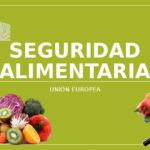Two in 5 Europeans take a personal interest in food safety and only 1 in 5 say it is their main concern when choosing food. For most Europeans it is one of several factors – together with price, taste, nutrition and food origin – that influence their eating habits and food choices.
These are some of the many insights from a new Eurobarometer survey by EFSA, published last 8th of July on the first ever World Food Safety Day.
World Food Safety Day gives “consumers, producers and governments a chance to focus on an issue that is often taken for granted” according to the United Nations. Our survey results suggest that most Europeans (55%) have a high level of awareness of food safety topics and two-thirds have changed their behaviour as a result of receiving information about food safety issues.
First EU food safety survey since 2010
The 2019 survey was developed together with EU Member States to take on board new perspectives and ensure closer contact with citizens. It still allows some useful comparisons with previous surveys.
No single over-riding safety concern
When food safety is a factor, there is no single concern that predominates in all EU countries. However, there are three issues that surface most frequently in 20 EU Member States or more: the misuse of antibiotics, hormones and steroids in farm animals (44%), pesticide residues in food (39%), and food additives (36%).
These were also among the main concerns reported in the 2010 Eurobarometer on food safety. Yet, Europeans seem less concerned than they were before about issues such as GMOs and new issues such as microplastics have appeared on the food safety radar for the first time.
Information and trust
For World Food Safety Day, the UN agencies have highlighted the trust citizens place on governments and producers to keep food safe.
In Europe, scientists (82% – an increase from 73% in 2010), consumer organisations (79%) and farmers (69%) enjoy the highest levels of trust among Europeans when it comes to information on food risks.
Trust in both national authorities (60%) and European Union institutions (58%) are quite high and in line with the 2010 results. However, the report shows that Europeans have quite limited understanding of how the EU food safety system works.
As in 2010, television is the main source of information about food risks for seven in ten of all Europeans. But, whereas more younger people turn to social media after TV (45% of 15-24-year olds), older people opt for traditional sources such as newspapers (46%) and radio (30%).
Selected results from the Eurobarometer survey
- The most important factors for Europeans when buying food are where the food comes from (53%), cost (51%), food safety (50%) and taste (49%). Nutritional content is slightly less important (44%), while ethics and beliefs rank lowest (19%). Overall, 41% of respondents say that they are ‘personally interested in the topic of food safety’. Just over one fifth of Europeans (22%) say that safety is their main concern when choosing food.
- Two-thirds of Europeans (66%) have changed their consumption after receiving information about a food risk. For 33% the change was permanent; for the other 33% only for a while.
- Changes in consumption behaviour are more common among women, those in the middle age bands, and those with higher levels of education.
- The most frequently cited concerns are ‘antibiotic, hormone or steroid residues in meat’ (44%), ‘pesticide residues in food’ (39%), ‘environmental pollutants in fish, meat or dairy’ (37%) and ‘additives like colours, preservatives or flavourings used in food or drinks’ (36%).
- Trust is highest in scientists (82%) and consumer organisations (79%) for information on food-related risks, followed by farmers (69%), national authorities (60%), EU institutions (58%), NGOs (56%) and journalists (50%). Fewer people trust supermarkets and restaurants (43%), food industries (36%) and celebrities, bloggers and influencers (19%).
- Just over 2 in 5 respondents (43%) say that ‘there are regulations in place to make sure that the food you eat is safe’. Three in ten (28%) know that ‘to decide how risky something could be for you to eat, the EU relies on scientists to give expert advice’.







Leave a Reply